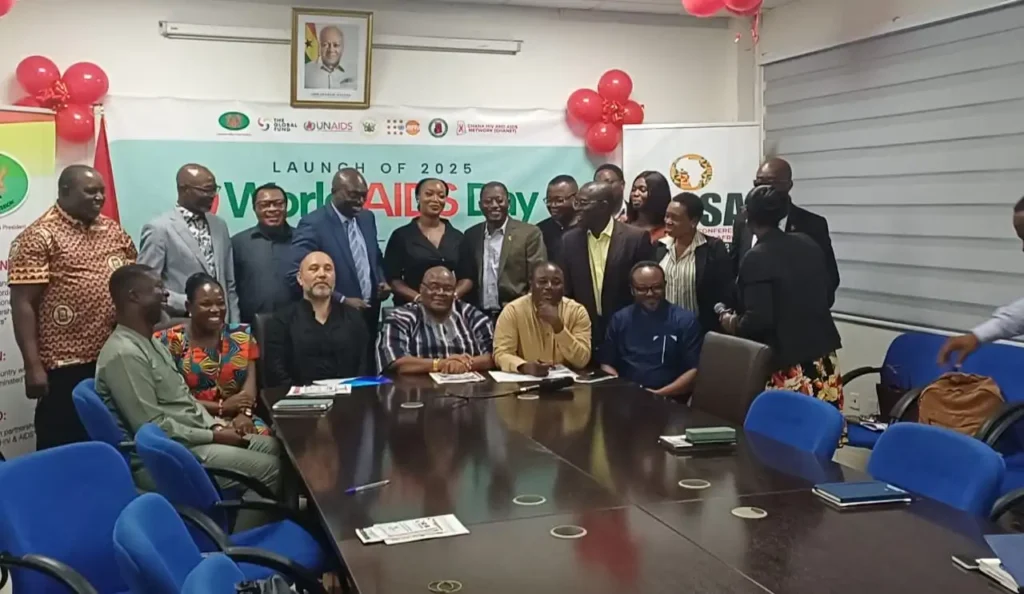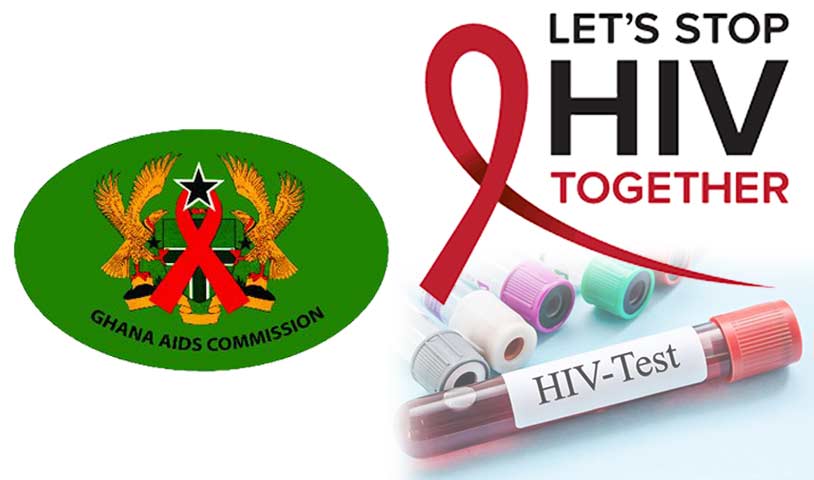Programme Manager of the National AIDS Control Programme (NACP), Dr. Emmanuel Teviu, has reaffirmed Ghana’s commitment to achieving an AIDS-free generation by 2030. Speaking at the launch of World AIDS Day 2025 in Accra, he called for stronger collective action to sustain progress in the national HIV response and to eliminate stigma and discrimination.
Dr. Teviu revealed that 68 percent of people living with HIV are aware of their status, 69 percent are receiving treatment, and among those, 90 percent have achieved viral suppression. He emphasized that stigma remains a major barrier to care despite HIV services being available in over 800 health facilities nationwide.
“Today, we stand together to remember those we have lost, celebrate the courage of those living with HIV, and renew our shared commitment to a future where no Ghanaian dies of AIDS or faces discrimination because of HIV,” he stated.
Observed globally on December 1, World AIDS Day serves to assess national and global responses to the epidemic, support persons living with HIV, and honor those who have died from AIDS-related causes. Ahead of the main event, the Ghana AIDS Commission (GAC) launched its 2025 activities under the global theme “Overcoming Disruption, Transforming the AIDS Response” and sub-theme “Africa Unites Against AIDS.”
According to the 2024 National HIV Estimates, Ghana recorded 334,721 persons living with HIV, with women accounting for nearly two-thirds of the total. While infection rates continue to decline across most regions, the country still recorded 15,290 new infections and 12,614 AIDS-related deaths in 2024.
Dr. Teviu described these numbers as “not just statistics, but lives that could have been saved through earlier testing, timely treatment, and stronger adherence support.”

Board Chair of the Ghana AIDS Commission, Kakra Essamuah, urged Ghanaians to take ownership of the national HIV response amid dwindling donor support. He commended the country’s progress, noting that nearly 70 percent of people living with HIV now know their status. He, however, cautioned that sustaining these gains requires increased domestic resource mobilization, stronger partnerships, and active private sector involvement.
“The private sector must rise to the challenge by investing in workplace HIV programmes and supporting awareness and testing campaigns. Your contributions can help sustain national momentum even as donor support declines,” he appealed.
He reaffirmed the Commission’s commitment to fostering collaboration across all sectors to end AIDS. “Together, we can build a resilient and self-reliant response that safeguards our people and secures our shared future. Let us build a Ghana where every person can live free from fear and stigma,” he added.
Acting Director of the Ghana AIDS Commission, Dr. Khamacelle Prosper Akanbong, outlined innovative strategies being adopted to strengthen HIV prevention and engagement, especially among the youth.
“We are leveraging social media innovations to reach the 15 to 24 age group, who are highly active online. We are also collaborating with the School of Public Health’s Social Communication Unit. Additionally, there is a drug available that can help prevent infection,” he stated.
The launch marks the beginning of a series of nationwide activities leading up to the World AIDS Day 2025 national celebration.
By: Angela Adu-Asomaning and Alberta Asanewa Dwirah


